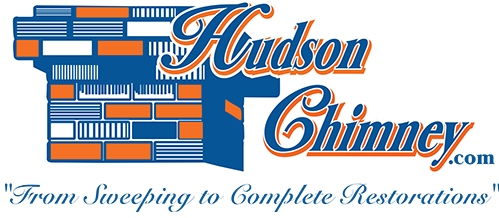by Fred Brewer | Jan 13, 2015 | Cleaning Dryer Vents
Many of our customers at Hudson Chimney are surprised to learn that their clothes dryer vent should be professionally cleaned once a year. An easily forgotten maintenance task, neglecting to thoroughly clean your dryer vent annually can lead to a dangerous house fire. As stated by the Chimney Safety Institute of America (CSIA), 15,000 fires, 15 deaths, and 400 injuries caused by dirty clothes dryer vents were reported to the US Fire Administration each year between 2002 and 2004. To be sure your dryer is not a fire hazard, an annual professional cleaning of the vent is important for the safety of your house and family. Your clothes dryer will also work much more effectively, which will save you money on electric or gas bills. We would like to share with you some of the reasons behind the importance of this yearly maintenance step.
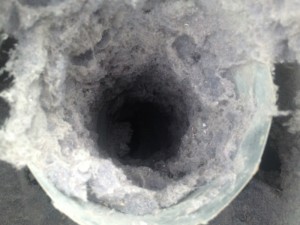
A Dirty Clothes Dryer Vent Can Decrease the Efficiency of Your Dryer.
When your dryer vent is clogged with lint and debris, your clothes dryer will not work as well as it should. You may notice clothes still being wet or damp after going through a full drying cycle. This is one of the main signs of a dirty vent and should be a clear signal that your venting system needs cleaning. When you must use your dryer at its highest temperature, it decreases the life of the appliance and can also lead to your heating element burning out or a fire igniting. A dirty clothes dryer venting system will also cost you more money as it takes more electricity or gas to dry a load of clothes.
Dirty Dryer Vents Can Also Lead to the Possibility of Carbon Monoxide Leaks.
If you have a gas-powered clothes dryer, you must be sure that it is properly vented and that its exhaust vent is free from blockages from lint and debris. If there are venting problems or blockages, carbon monoxide can be forced back into the home. If you do not have an alarm for carbon monoxide, you could may never realize you are breathing in carbon monoxide until it is too late because this toxic gas is odorless and tasteless. Even if you have an electric dryer, you still have the possibility of carbon monoxide leaks due to a dirty vent.
The Locations of Dryers in Newer Homes Necessitate Annual Dryer Vent Cleaning and Inspecting.
The complex construction of newer homes is placing dryers in bathrooms, kitchens, closets, and other locations with no outside wall. This means a longer venting system must be installed and usually contains bends. This type of venting is harder to access, and its additional length provides more space for lint accumulation as well as a spot for animals and birds to hide. An annual dryer vent cleaning is especially important in these incidents to protect your home from a possible fire.
Just Because You Clean Your Dryer Vent Filter from Lint After Each Load Does Not Mean You Do Not Need an Annual Professional Vent Cleaning.
Although routine removal of lint from the dryer vent can reduce the risk of fire by 90%, you still need to schedule a professional cleaning of the dryer vent every year. Large clogs of lint can be found in the venting ducts as well as in the inner side of the wall. To ensure proper cleaning of your dryer’s venting system, you need to call a dryer exhaust technician from Hudson Chimney to do this task for you.
If you would like to schedule an appointment for your annual dryer vent cleaning, contact Hudson Chimney today. We can send our dryer exhaust vent technicians to your home to be sure your clothes dryer is not a fire hazard.
by Mark Hudson | Dec 15, 2014 | Firewood
If you have a wood burning fireplace or stove, you may wonder if there is anything of significance that you can do to maintain the efficiency, safety, and health of your appliance. The answer is yes! By choosing the best firewood to burn in your appliance, you can protect your chimney or stovepipe from rapid creosote build-up and your home from dangerous chimney fires. Not only this, but the right firewood will help you to create fires that are warmer and more enjoyable.
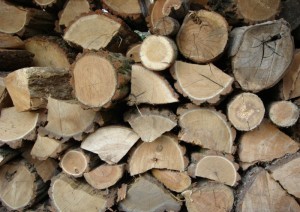
Regardless of the type of woodburning appliance you own, you should only burn seasoned firewood. According to the Chimney Safety Institute of America, the distinction between seasoned and unseasoned firewood is its moisture content. Seasoned firewood has a low moisture content, usually between 20 and 25 %. Unseasoned firewood, on the other hand, can have a moisture content as high as 45 %. Burning firewood with a higher moisture content can cause you and your chimney a number of problems, from the unpleasant to the dangerous. You will have trouble enjoying your chimney if you burn unseasoned firewood because of the unpleasant smell and smoke it produces. However, your biggest concern is that the water in unseasoned firewood will allow for creosote to rapidly build up in your chimney. Creosote is highly flammable, creating a hazard for chimney fires, and can build up into glazed creosote, which can only be removed from your chimney by a professional with chemicals.
If you chop your own firewood, it is easy to know if it is seasoned or unseasoned. Simply be sure to cut your firewood to length six months before you plan to use it in order to give water in the wood time to environment. Cutting your wood to length opens up the microscopic tubes in the wood that hold water, which allows the water to escape.
If you buy your firewood, it is a little more difficult to tell if your firewood has been properly seasoned. The best way to be sure your firewood has been properly seasoned is to buy it six months before you intend to use it and store it properly. However, seasoned and unseasoned firewood have characteristics that differentiate them from each other that you can utilize to see if the firewood you are buying has been seasoned. Seasoned firewood has darker ends and more cracks than unseasoned firewood and also tends to be lighter. Seasoned firewood also makes a clunking rather than a thudding noise when it is hit.
Whether or not you buy or chop your firewood, you must be sure that it is properly stored. A wood shed is the best place to store firewood. However, you can also store wood in a sunny location as long as you remember to cover the wood when it rains or snows. No matter where you store it, make sure that air is allowed to circulate to promote evaporation and try to store the wood off of the ground.
Give Hudson Chimney a call if you are unsure if you are burning the correct kind of firewood or if you have concerns regarding creosote build-up. The professionals at Hudson Chimney know how to keep you and your home warm and safe!
by Mark Hudson | Nov 15, 2014 | Firewood
If you have a wood burning appliance, then you have more control than you probably think over the way your appliance runs. The type of wood you burn influences how efficiently your chimney runs in addition to the overall health of your chimney. It is important, then, that you choose to burn seasoned firewood. According to the National Chimney Safety Institute of America, burning seasoned firewood will allow your appliance to burn cleaner and more efficiently than burning unseasoned firewood. In fact, whether or not your firewood is seasoned is far more important than the species of wood you burn.
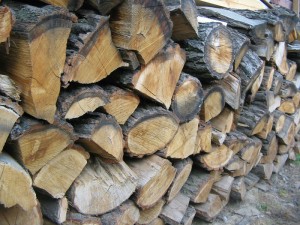
You may be wondering what the difference is between seasoned and unseasoned firewood as well as why this difference is important. All wood has a certain amount of water in it. Seasoned firewood has moisture content of 20 to 25 percent while unseasoned wood can have a moisture content of up to 45 percent. Burning unseasoned wood is inefficient because energy is lost to drying the wood before burning it, leading to a lower heat output. Not only this, but burning unseasoned wood also leads to more creosote build up in your chimney or stovepipe.
In order to make sure that your firewood is seasoned if you chop it yourself, cut it to length at least six months before using it. Splitting and cutting the firewood to its proper length gives the wood more exposure to the sun and wind, allowing evaporation to occur. If you buy your firewood, it is good to buy it the spring before you use it to ensure that it is well seasoned. However, if you buy your firewood close to the time you burn it there are several ways to tell if the firewood you are buying is seasoned. Check to make sure that the ends of the firewood are cracked and darkened and that the wood is light and makes a “clunking” noise when two pieces are hit together. Unseasoned firewood will be heavier.
The way you store your wood is also important to the way it will burn. If your firewood is exposed to snow and rain, it will absorb too much water to burn properly and possibly rot. Store your wood off of the ground and cover it in the case of bad weather. Leave it uncovered on sunny days to allow evaporation to occur.
When burning wood, make sure that you do not burn wood that has been painted or treated, which can cause toxic fumes to be released into your home. Also, if you end up burning unseasoned wood, it is important that you have your chimney or stovepipe frequently cleaned and inspected to avoid hazardous creosote build up.
If you are unsure about the type of wood you should be burning in your fireplace, ask an expert at Hudson Chimney during your annual chimney cleaning and inspection. The professionals at Hudson Chimney have the knowledge and training to help you determine the best choices for your chimney in order that it run efficiently and safely.
by Mark Hudson | Oct 28, 2014 | carbon monoxide
When a professional inspects your chimney, he or she looks for a number of problems that could cause damage to your chimney or home as well as potential safety hazards. One of these hazards is carbon monoxide, which can cause health problems, including permanent brain and organ damage, to you and your loved ones in low doses and death in high doses. For this and other reasons, it is recommended by the Chimney Safety Institute of America that your chimney be serviced professionally at least once a year.
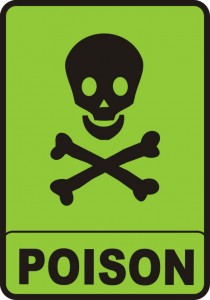
The easiest preventative measure against carbon monoxide leaks is to have your chimney cleaned in addition to its inspection by a professional. If you have a woodburning appliance, you have to be careful of creosote buildup in your chimney. Creosote is extremely combustible, making it a fire hazard. In addition to this, it builds up to the point where it will prevent proper ventilation of your appliance, not only causing it to become inefficient but allowing toxic gases such as carbon monoxide to stay in your home. An annual cleaning can prevent creosote build up. In addition to this, make sure you only burn seasoned cordwood. Burning unseasoned wood leads to additional creosote build up.
No matter the type of appliance you have, your chimney or stovepipe must be clear of all debris to ensure proper ventilation and the expulsion of carbon monoxide from your home. An annual inspection can help to ensure that your chimney or pipe is clear of such debris. Another way to prevent chimney blockage is to have a professional install a chimney cap. Not only does a chimney cap prevent water damage to your chimney and home, but it prevents animals and environmental debris from entering your chimney and blocking carbon monoxide from exiting your home.
If you have an oil or gas burning appliance, you still have to worry about carbon monoxide, even if it is not a direct byproduct of combustion. Oil flues must be cleared of soot in order to prevent blockage, while the flues of gas burning appliances are subject to corrosive circumstances. According to the Chimney Safety Institute of America, such appliances should be inspected regularly to ensure that toxic fumes such as carbon monoxide are allowed out of the house as well as to prevent carbon monoxide from becoming trapped inside of the home.
If you have not recently had your chimney inspected or cleaned, call Hudson Chimney. Their professionals are trained and certified to make sure that your appliance is safe to run and works efficiently to heat your home. They will be sure that you and your loved ones are safe from the dangers of carbon monoxide poisoning by thoroughly cleaning your flue as well as checking to make sure your appliance is in proper order for the cold winter months. In addition, if you think that you or a loved one is suffering from carbon monoxide poisoning, it is imperative to seek out medical attention as quickly as possible.
by Mark Hudson | Oct 15, 2014 | Chimney Cap
Does your chimney have a cap? A chimney cap may seem insignificant and maybe not that important, but it serves a variety of functions to protect your chimney and home! The Chimney Safety Institute of America suggests that all chimneys have caps as a preventative measure against damage and for safety reasons. If you do not have a chimney cap or your chimney cap needs to be replaced, it is important that you call Hudson Chimney as soon as possible to install a cap in order to prevent the damages associated with not owning one.
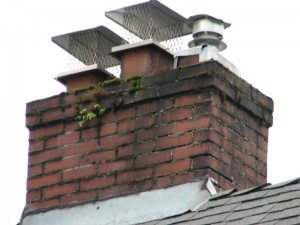
There are many reasons why it is important to keep your chimney capped. A chimney cap stops rain from getting into your chimney, preventing water damage to both your chimney and your home. Water damage can cost you a lot of money in repairs as well as destroy your chimney if not confronted quickly. While a chimney cap is important to preventing water from entering your chimney, water damage can also be prevented by having the professionals at Hudson Chimney apply a sealant to the exterior of your chimney.
A chimney cap also keeps animals out of your chimney, which can create noise, smells, and provide them an entrance into your home. Chimney caps prevent environmental debris, such as sticks and leaves, from entering your chimney as well, which can cause dangerous chimney fires. Having debris or animals in your chimney can also block smoke and fumes from efficiently leaving your chimney, which will lead to improper ventilation that will not allow dangerous fumes to exit your home. Because they prevent things from entering and blocking your chimney, chimney caps ensure that your chimney’s air flow runs efficiently. Chimney caps also help to eliminate downdrafts, which blow cold air as well as fumes from your fire back into your home. A chimney cap also protects your chimney liner and prevents sparks from flying out of your chimney and lighting things on fire.
If you are looking for a sturdy and durable chimney cap that doesn’t rust, Hudson Chimney can install a stainless steel cap for you. However, you also have the options of having a copper, galvanized, or aluminum cap installed. Consult with an expert at Hudson Chimney to determine the best cap for your chimney. No matter your choice, chimney caps are one of the least expensive chimney repairs that can be made as well as one of the simplest. Therefore, it makes financial sense to have a chimney cap installed rather than waiting for damages to occur that will cost you more!
So if you don’t have a chimney cap or if your chimney cap needs to be replaced, give Hudson Chimney a call as soon as possible. The professionals there will be sure that you have a cap installed that will protect your chimney and home.
